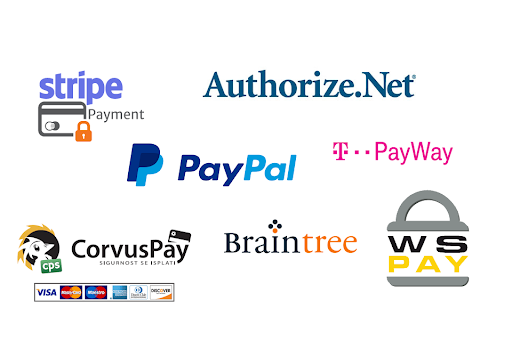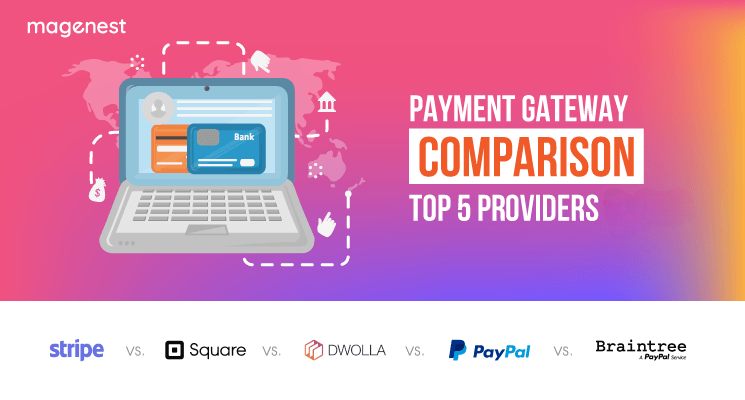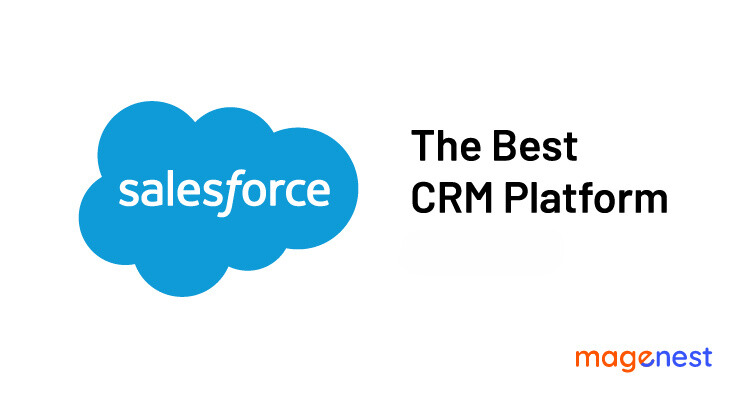Even businesses that do all of their business online are subject to the law. A large retail market is emerging on the Internet as more businesses seek to compete with Amazon and other giants. To survive in this competitive environment, the company is actively enacting new laws and policies.
Starting an internet business could mean selling things exclusively online or mixing e-commerce with a brick-and-mortar store.
There are various requirements that you must follow when starting your e-commerce business, such as how and when to collect sales tax. Before you get into trouble, be sure you follow the rules. Here are a few things about What are Online Business Laws for you to keep in mind.
What are Online Business Laws?
Online business laws are similar to those that govern brick-and-mortar businesses, but they have their own set of issues that must be taken into account. These include the necessity to adhere to strict copyright, security, privacy, and sales tax requirements.
People are increasingly using the internet for both commercial and retail activities. Because the state can impose penalties and ban businesses that violate the rules, it is critical for both businesses and consumers to have a general understanding of the basic law that exists and applies to transactions over the internet.

The very nature of commerce over the internet is that it is multi-jurisdictional because once you have a website, you are engaging in possible activity in every nation in the world that has access to the internet, which is every nation in the world.
Though the laws governing how your business conducts online commerce vary by state, there are also national laws and international regulations. Everything from taxes to privacy is covered by the laws. Furthermore, due to constant technological advancements, e-commerce laws are a work in progress.
10 Online Business Laws You Need to Know
#1 Taxes
To begin, understand that when it comes to taxes, each state and country has its own set of expectations and requirements. That implies you'll need to do some research to figure out who your target market is.
If your store's target market is in the United States, for example, you'll probably want to display prices before taxes. If your target market is Australia, where buyers are used to seeing all-inclusive costs, you should add tax. Other concerns revolve around what you're selling and where you're selling it.
For example:
- If you live in New York and wish to sell clothes, you should be aware that clothing is taxed in your state.
- In Britain, All non-essential products are subject to value-added tax (VAT).
- In California, you'll have to pay a $0.11 recycling fee on top of other taxes if you sell things in plastic bottles.
To make sure you've covered all of your bases, consult a tax specialist or the local tax authorities.
These experts will be able to assist you in understanding specific circumstances that may affect your product or business, provide insight into how you should charge tax for your business's location, help you in obtaining necessary documents such as a tax ID, and determine whether you qualify for sales tax exemption and resale certificates.
Keep in mind that this information — as well as the regulations that govern it — is always changing. This is just one of the many reasons why consulting with a tax professional or your local tax authority is an essential part of running a successful business. Alternatively, you can automate the majority of the process with an app.
#2 Payment gateways
eCommerce businesses have access to a variety of payment gateways. Don't let the fact that many of them have restrictions on certain products or services you might want to sell make you feel limited.
When you're evaluating payment gateways, make sure to inquire whether they have any product limitations, as well as whether they're hosted or non-hosted. Anti-fraud features and costs such as transaction fees, termination fees, monthly fees, and setup fees should be included.

#3 Trademarks, patents, and copyrights.
There are some common misunderstandings regarding what these terms mean, as well as must-know laws and regulations around each one.
To avoid any unexpected legal complications, you'll want to make sure you understand each one thoroughly.
They are defined as follows by the United States Patent and Trademark Office:
- Trademark: is a term, phrase, symbol, or design that identifies and differentiates the source of one party's goods from those of another.
- Patent: is a limited-duration property right awarded by the United States Patent and Trademark Office in exchange for the invention's public disclosure.
- Copyright: Protects physically expressed works of authorship, such as writings, music, and works of art.
You may or may not want to apply for one of these depending on the product you want to sell.
Although it isn't strictly necessary, you should double-check to ensure that your items or services aren't infringing on other patents or trademarks. Simply ensure that you conduct your research with the appropriate copyright, patent, and trademark authorities. They'll assist you in getting off to a good start.
#4 Shipping restrictions
It's time to talk about shipping constraints. The majority of shipping companies clearly state which items are prohibited. Typically, limitations are imposed on products such as:
- Airbags
- Ammunition
- Animals
- Aerosols
- Alcoholic beverages
- Cigarettes
- Dry ice
- Explosives
- Fresh fruits and vegetables
- Hazardous materials
- Nail polish
- Poison
- Perishables
- Perfumes
Also keep in mind that some providers may allow you to ship usually prohibited things, but this may require additional documentation and extra fees. This is something you'll want to think about as you examine providers.
Check out the Federal Trade Commission's Electronic Commerce: Selling Internationally guide for more information on international shipping, including tax, duty, and customs laws.
#5 Inventory
Perhaps you're considering storing your online boutique's clothing in a spare closet or packing your handmade jewelry into several storage boxes to count?
While your determination is strong, your company may be too huge to legally operate out of your home.
You should also check your lease, deed, or zoning rules to see if running a business like the one you're considering out of your house is prohibited. You might be so surprised to hear that having a brick-and-mortar location or warehouse in the early stages of your business can be that beneficial.

If you're reluctant to build an offline store for your customers to shop and can't manage your business from your home, don't worry - there are other possibilities.
Indeed, it may be necessary to reconsider your product sourcing strategy. Consider forming a dropshipping or third-party logistics (3PL) collaboration with a shipping and fulfillment company that specializes in dropshipping.
Bonus? When you use a dropshipping or 3PL service, you limit shipping zones, or the distance packages travel, which lowers shipping costs and transit time. It's a win-win situation for both your company and your customers.
Creating a scalable business plan for the future will be easier if you have a systematic and concise inventory management plan in place ahead of time.
#6 Age restrictions
There are no exceptions to complying with the Children's Online Privacy Protection Act (COPPA) if you start a website. This act contains a number of rules, but the one that will most certainly apply to your site is the prohibition on collecting any personal information from children under the age of 13.
If you want to sell a product or service to a young audience, you'll need to follow COPPA guidelines. You should check your country's specific codes for age verification requirements for eCommerce sites selling age-restricted items.
For example, in order to be legally sold, sites selling vapes or alcohol must have age verification tools before checkout.
Every country has its own set of requirements for how to run a business, and things get extremely complicated when it comes to product age restrictions. To keep your business on the right track, do your research and stay up to date on the latest legislation.
#7 Business insurance
General liability, product liability, professional liability, commercial liability, and home-based insurance are among the several types of insurance available to small businesses.
Find out which type of insurance is best for your business and area by contacting your local insurance provider.
It's a smart idea to look into product liability insurance during your vetting process. It's for businesses who make, wholesale, distribute, or sell a product and are potentially liable for its safety. This is especially important if you plan to offer high-risk items like CBD.
Consider professional liability insurance (also known as mistakes and omissions insurance), which protects your company from malpractice, errors, and negligence.
#8 Licenses and permits
You may require a license to sell a product depending on what you chose to sell. This changes depending on where you are, so check with the local licensing office.Legal Zoom is an excellent resource for not only licensing but also other red tape problems in this section.
“If you're selling specialized products to a regulated industry (such medical devices or holistic health supplements), check with your state to see if you need to be licensed to deliver those products or services,” Nina Kauman wrote for Entrepreneur.
“However, in general, the sale of digital information, clothing, or handcrafted items (made in the United States) does not necessarily require the acquisition of a special business license. Rather, the business licensing needed for an online retail business is not significantly different from that required for a storefront business.”
#9 PCI compliance
PCI compliance is a necessary protection for online sellers, and it is built into nearly all SaaS eCommerce platforms to some extent. Data theft is a daily problem of online businesses, which is why eCommerce providers take it so seriously — and why you should, too.
The first step in ensuring your company's security is to educate it on PCI compliance.
Being PCI compliant involves more than just providing a secure, encrypted checkout experience; you must also avoid storing any purchasing information on paper or through recording (e.g. if someone were

#10 Marketing infringement
Businesses can market their products online thanks to the internet, but certain rules must be followed. When selling products over the internet, all online merchants, no matter how small, are subject to federal regulations. Businesses are not permitted to make false claims about their products or services, and they are required to disclose paid endorsements.
Email marketing is a popular way to reach out to both new and existing customers. Business owners (and their employees) must ensure that their email marketing campaigns adhere to the CAN-SPAM Act.
Furthermore, online merchants must not infringe on trademarks or patents, and if your company sells products aimed at children, you must take extra precautions not to violate the Children's Online Privacy Protection Act.
What you didn’t know you needed to know
Individual platform requirements may also exist, which you should be aware of before launching your business.
For example, when you download Facebook Messenger (which you can now use to transfer payments! ), you agree to Facebook listening to you and serving ads based on what you say. No, you were not hallucinating after a conversation with your spouse in the kitchen earlier that night. But it's the year 2024, and this is our new reality.
Transparency with your company and customers eliminates the possibility of irritating legal conflicts or lost business.
Trust must be earned with your customers, so take the initiative to educate yourself and protect your brand by creating an online store that complies with all legal requirements. Isn't it more favorable to be safe than sorry?
Understanding the implications of all of these laws is critical for the health of your business — as well as the protection of customers who become your customers.
Conclusion
E-commerce is rapidly evolving, and businesses are trying to adapt to these changes. If you are a business owner in the tourism industry, you should keep the legal aspects of e-commerce in mind when deciding to sell your services or products online (such as allowing online bookings, for example).
In this situation, you are required to follow what are online business laws.

















